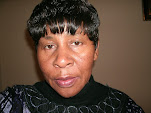Happy Mother's Day to all my Sisters in the Lord, my Friends, all you women who are acknowledged, especially
those who are not acknowledge.
Especially those who are unnamed
Especially those who are unknown.
Especially those who are despised.
Especially those who are never paid.
Especially those whose constant care, nurturing, security,
protection, guardianship is not recognised!
Happy Mother's day to those who still have their darling husbands
with them.
To the widowed Mothers who simply have memories of their loved
ones, their children.
To those Single Mothers who are divorced.
To those Single Mothers who are separated.
To those Single Mothers who have never been married.
To those Mothers who have adopted children and cared for them as
their own.
For those Mothers who gave birth to us amidst the uncertainity and
pain.
To those Mothers who chose to embrace us as their own and nurtured
us.
To those Mothers who don't know where the next meal is coming
form.
To those Mothers who don't know if her children will afford school
next term.
To those Mothers anywhere in the world who wake up very early,
toil and strive like donkeys in any way so their children may get
better lives.
To those Mothers who turn to prostitution when they can't see
another way so that their children may be and become.
To all those Mothers who are sick and suffering.
To those who cant take care of their children because of different
reasons.
To those Mothers who were forced in pain to have children and not
on their own terms.
To all those Mothers who are carrying generations as grandmothers
and great grandmothers.
We esteem Mary, Mother of Jesus, Mother exemplary, who even in her
young age, as a virgin, simply agreed to God's plan for our
salvation.
Kiriba kitya ekyo Malaika, kubanga nze simanyi musajja!
"My soul magnifies the Lord
And my spirit rejoices in God my Savior;
Because he has regarded the lowliness of his handmaid;
For behold, henceforth all generations shall call me blessed;
Because he who is mighty has done great things for me,and holy is
his name;
And his mercy is from generation to generation on those who fear
him.
He has shown might with his arm,He has scattered the proud in the
conceit of their heart.
He has put down the mighty from their thrones,and has exalted the
lowly.
He has filled the hungry with good things,and the rich he has sent
away empty
.He has given help to Israel, his servant, mindful of his mercy
Even as he spoke to our fathers, to Abraham and to his posterity."
The Magnificat, taken from Luke’s Gospel (1:46-55), is the
Blessed Virgin Mary’s hymn of praise to the Lord.
To all those Mothers who have departed this world yet are still in
our hearts and fond memories.
Whose earthly pictures/photos we may never have but they will
laways be stamped in our hearts.
I will always remember my Dear Mother Robinah.S.B.K. whom I didn't
get much the chance to show my gratitude and love.
To God be the Glory, great things he has done, by creating Mothers
and the gift of Mothering.
For we would not be without them.
Rev. Jessica Nakawombe





